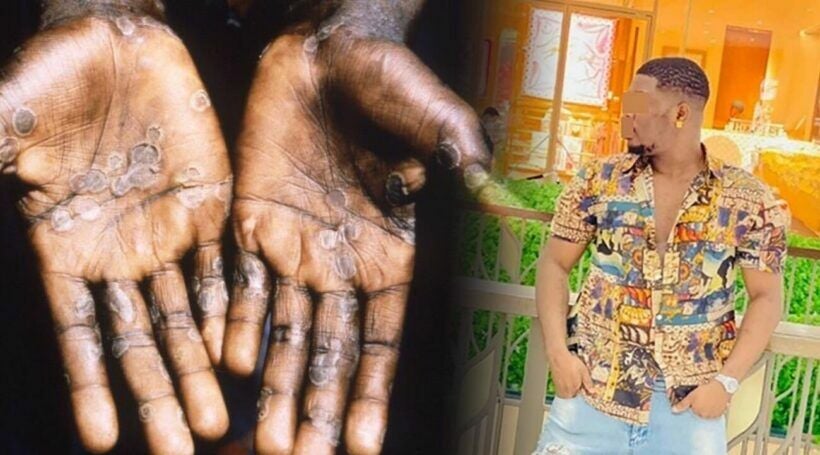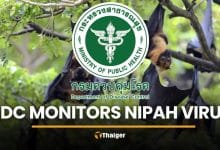Thailand’s first Monkeypox-related death highlights rising infectious disease threat

A severe case of Monkeypox in Thailand, infecting a 34 year old man with HIV and syphilis, culminated in the country’s first fatal mishap related to this viral scourge. The unfortunate news dropped yesterday, courtesy of Thailand’s Department of Disease Control (DDC).
Explicating the unfolding of events, the DDC’s Director-General Dr Tares Krassanairawiwong took note of the initial discomforts plaguing the unnamed Thai man. On July 3, he contended with a fever, constant headaches, itchiness and a rash that covered most of his body.
Undeterred, he sought treatment at a private hospital in Chon Buri eight days later. Subsequent tests exposed the harsh reality: he was bearing the onslaught of not just HIV and syphilis, but Monkeypox as well, which last year was renamed mpox to avoid racism and stigmatisation. Dr Tares said…
“Alongside a sore throat – a consequence of a fungal infection notorious for targeting HIV patients – the individual’s body rash was also a Monkeypox manifestation.”
The infected man spent four exhaustive weeks in the hospital before his discharge.
When August 9 dawned, the man’s family noticed his abrupt struggle with fatigue and respiratory distress, resulting in immediate admission to Nonthaburi’s Bamrasnaradura Infectious Diseases Institute. At this point, he was battling a persistent rash, significant necrosis on his nose and neck, and multiple infections in his limbs, lungs, and brain, dissolving into severe immunodeficiency.
Unravelling the climax of the unfortunate ordeal, Dr Tares said…
“Although he underwent treatment with specific Monkeypox medication and a course of antibiotics, his condition took a turn for the worst, culminating in his departure on August 11.”

Dr Tares cast light on the escalating monkeypox situation as an up-and-coming infectious threat to Thailand’s public health armour. As of August 8, the total count stood at 189 cases featuring 161 Thai citizens and 28 individuals of foreign origin. The demographic predominantly at risk appears to be men seeking unprotected sexual encounters with strangers, wherein 43% are also battling HIV. Their compromised immune system puts them in the direct line of fire for such diseases.
Dr Sophon Iamsirithaworn, DDC’s deputy director-general, spotlighted the behavioural patterns that contribute to the disease’s spread – individuals continuing to engage in high-risk conduct. He accompanied this with a rather grim global statistic – the Monkeypox outbreak, reported first in the previous year in May, has already claimed 152 lives worldwide, reported Bangkok Post.
In a bid to mitigate this escalating health crisis, Thailand has procured a batch of Tecovirimat, marketed as TPOXX, an antiviral medication from the World Health Organisation reserved specifically for Monkeypox. It aims to offer some respite to those afflicted with this formidable virus.
Latest Thailand News
Follow The Thaiger on Google News:


























